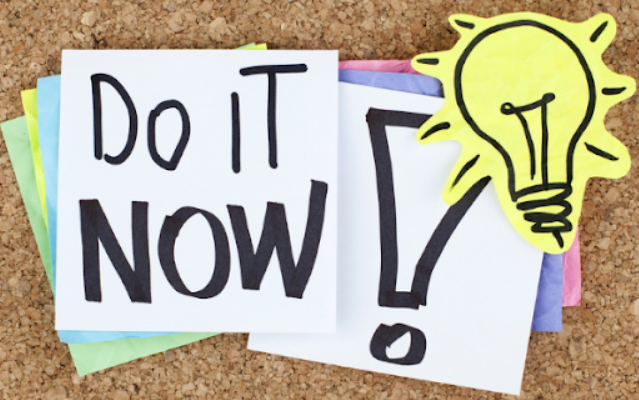Top 10 Best Simple ️Ways to Fight Stress | stress
Stress and anxiety are common experiences for most people. In fact, 70% of adults in the United States report experiencing stress or anxiety on a daily basis.
Here are 10 easy ways to relieve stress and anxiety
1. Exercise
 |
| Exercise |
One of the most important things you can do to deal with stress is exercise.
It may sound contradictory, but putting physical stress on your body through exercise can relieve mental stress.
The benefits are strongest when you exercise regularly. People who exercise regularly are less likely to experience anxiety than those who do not exercise.
There are several reasons behind this:
- Stress hormones: Exercise lowers your body's stress hormones, such as cortisol, in the long run. It also helps release endorphins, which are chemicals that improve your mood and act as natural pain relievers.
- Sleep: Exercise can also improve the quality of your sleep, which can be negatively affected by stress and anxiety.
- Confidence: When you exercise regularly, you can feel more competent and confident in your body, which promotes mental well-being.
- Try to find an exercise routine or activity that you enjoy, such as walking, dancing, rock climbing, or yoga.
Activities, such as walking or jogging, that involve repetitive movements of large muscle groups can be particularly effective in relieving stress.
Regular exercise can help reduce stress and anxiety by releasing endorphins and improving your sleep and self-image.
2. Consider supplements
 |
| Consider supplements |
Several supplements help reduce stress and anxiety. Here's a quick look at some of the most common:
- Lemon Balm: Lemon balm is a member of the mint family that has been studied for its anti-anxiety effects.
- Omega-3 fatty acids: One study showed that medical students who received omega-3 supplements experienced a 20% reduction in anxiety symptoms.
- Ashwagandha: Ashwagandha is an herb used in Ayurvedic medicine to treat stress and anxiety. Several studies suggest that it is effective.
- Green tea: Green tea contains many polyphenolic antioxidants that provide health benefits. It can reduce stress and anxiety by increasing serotonin levels.
- Valerian: Valerian root is a popular sleeping pill due to its tranquilizing effect. It contains valerenic acid, which changes gamma-aminobutyric acid (GABA) receptors to reduce anxiety.
- Kava kava: Kava kava is a psychoactive member of the pepper family. Long used as a sedative in the South Pacific, it is increasingly used in Europe and the United States to treat mild stress and anxiety.
Some supplements can interact with medications or have side effects, so you may want to see a doctor if you have any medical condition.
Some supplements can reduce stress and anxiety, including ashwagandha, omega-3 fatty acids, green tea, and lemon balm.
3. Light a candle
 |
| Light a candle |
Using essential oils or burning a scented candle can help reduce your feelings of stress and anxiety.
Some scents are particularly soothing. Here are some of the most calming scents:
- Lavender
- Pink
- Vetiver
- Bergamot
- Roman chamomile
- Neroli
- Incense
- Sandalwood
- Ylang ylang
- Orange or orange blossom
- Geranium
Using scents to treat your mood is called aromatherapy. Several studies show that aromatherapy can decrease anxiety and improve sleep.
Aromatherapy can help reduce anxiety and stress. Light a candle or use essential oils for soothing scents.
4. Reduce your caffeine intake
 |
| Reduce your caffeine intake |
Caffeine is a stimulant found in coffee, tea, chocolate, and energy drinks. High doses can increase anxiety.
People have different thresholds for the amount of caffeine they can tolerate.
If you notice that caffeine is making you nervous or anxious, consider reducing your intake.
While many studies show that coffee can be healthy in moderation, it's not for everyone. In general, five cups or less per day is considered a moderate amount.
Large amounts of caffeine can increase stress and anxiety. However, people's sensitivity to caffeine can vary widely.
5. Write it down
 |
| Write it down |
One way to deal with stress is to write things down.
While recording what is stressing you out is one approach, another is to write down what you are grateful for.
Gratitude can help relieve stress and anxiety by focusing your thoughts on the positive in your life.
Journaling can help relieve stress and anxiety, especially if you are focusing on the positive.
6. Chew gum
 |
| Chew gum |
For super easy and quick stress relief, try chewing some gum.
One study found that people who chew gum had a greater sense of well-being and less stress.
One possible explanation is that chewing gum causes brain waves similar to those of relaxed people. Another is that chewing gum promotes blood flow to your brain.
Additionally, a recent study found that stress relief was most important when people chew harder.
Chewing gum can help you relax, according to several studies. It can also promote well-being and reduce stress.
7. Spend time with friends and family
 |
| Spend time with friends and family |
Social support from friends and family can help you get through stressful times.
Being part of a network of friends gives you a sense of belonging and self-worth, which can help you through difficult times.
One study found that for women, in particular, spending time with friends and children helps release oxytocin, a natural stress reliever. This effect is called "tender and befriend" and is the opposite of the fight or flight response.
Keep in mind that both men and women benefit from friendship.
Another study found that men and women with the least social connections were more likely to experience depression and anxiety.
Having strong social connections can help you get through stressful times and lower your risk for anxiety.
8. Laugh
 |
| Laugh |
It's hard to feel anxious when you laugh. It's good for your health, and there are several ways you can relieve stress:
- Relieve your stress response.
- Relieve tension by relaxing your muscles.
In the long run, laughter can also help improve your immune system and your mood.
A study of people with cancer found that people in the laughter intervention group experienced more stress relief than those who were simply distracted.
Try watching a funny TV show or hanging out with friends who make you laugh.
Find humor in everyday life, hang out with funny friends, or watch a comedy show to help relieve stress.
9. Learn to say no
 |
| Learn to say no |
Not all stressors are under your control, but some are.
Take control of the areas of your life that can change and that stress you out.
One way to do this may be to say "no" more often.
This is especially true if you find yourself taking on more than you can handle, as juggling many responsibilities can leave you overwhelmed.
Being selective about what you do - and saying no to things that will add unnecessarily to your load - can reduce your stress levels.
Try not to take more than you can handle. Saying no is one way to control your stressors.
10. Learn to avoid procrastination
 |
| Learn to avoid procrastination |
Another way to control your stress is to stay on top of your priorities and stop procrastinating.
Procrastination can cause you to act reactively, forcing you to catch up. This can cause stress, which negatively affects your health and the quality of your sleep.
Get into the habit of making a priority to-do list. Set realistic deadlines for yourself and work your way up the list.
Work on the things that need to be done today and allow yourself uninterrupted time, as switching between tasks or multitasking can be stressful in itself.
Prioritize what needs to be done and take the time for it. Staying on top of your to-do list can help avoid the stress of procrastination.
Conclusion
While stress and anxiety can arise at work and in your personal life, there are many easy ways to reduce the pressure you are feeling.
These tips often involve moving your mind away from the source of stress.
Exercise, mindfulness, music, and physical privacy can all help relieve anxiety - and they'll improve your work-life balance, too.











Comments
Post a Comment